Animal Rights Activists Disrupt Exclusive Pig Roast Event in Washington, D.C.
The News
Dozens of animal rights activists disrupted a event celebrating pig consumption at the Watergate Hotel in Washington, D.C. According to organizers, Cochon555 is “a nose-to-tail culinary tour dedicated to . . . educating chefs and diners about the agricultural importance of utilizing Old World livestock.” The event is held in 14 cities around the country. “Cochon” is French for pig.
“Cochon555 is working to make people feel good about eating meat by perpetuating the myth that animals can be slaughtered humanely,” said Amanda Houdeschell, one of the organizers of the protest. “It’s a fraud, and it’s giving people who might otherwise abstain from eating animals a free pass to turn a blind eye to the horrors inflicted on them.”
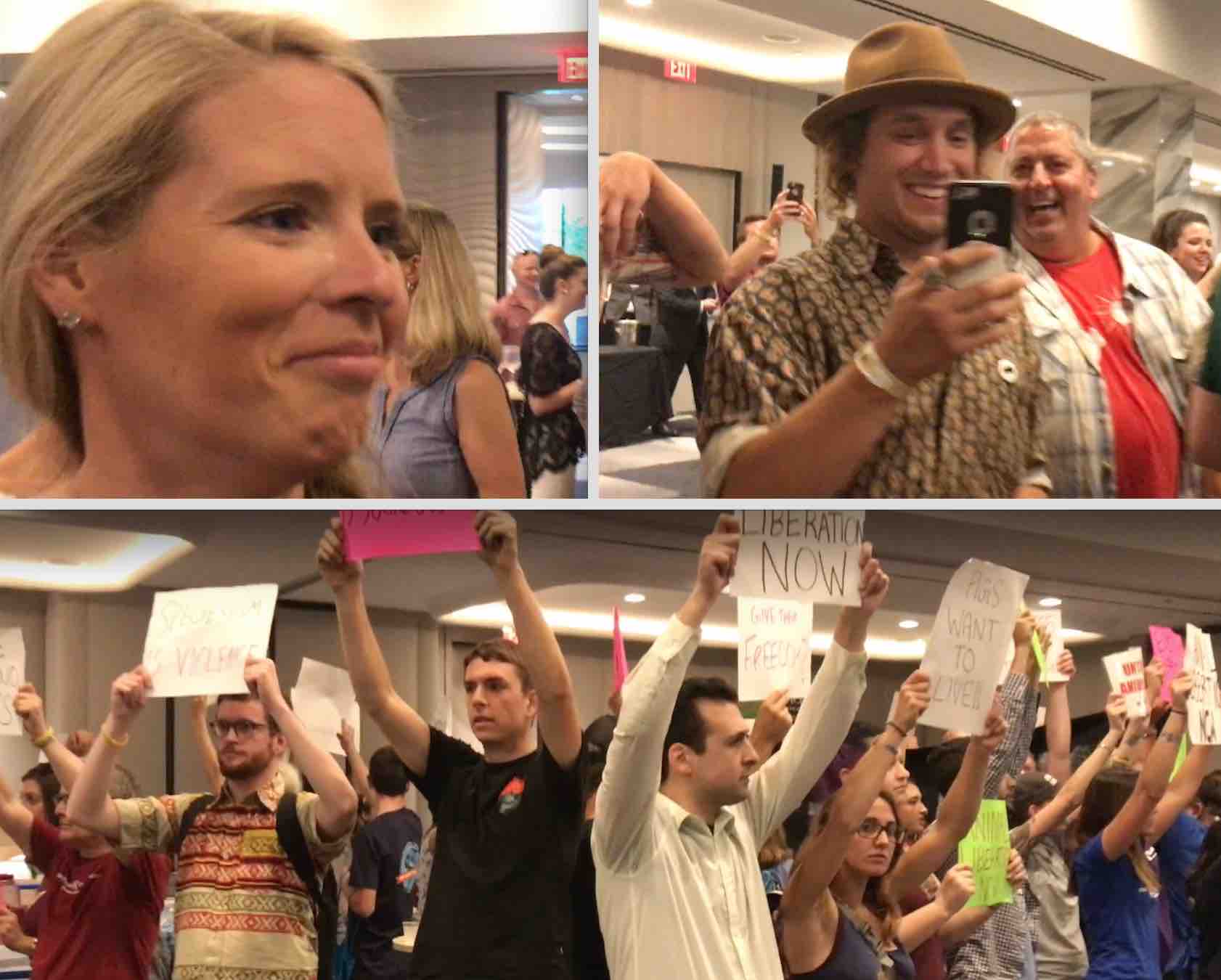
Cochone555 guests appear to be amused by the disruption. Activists speculate that, for many, nervous laughter was a defense mechanism.
Several minutes into the disruption, Cochon555 organizers turned off the lights in the hotel ballroom and turned up the volume on the music in an effort to drown out the protesters. While many of the guests at the carnivorous event appeared to be amused by the disruption, organizers were visibly jarred. As protesters exited the hotel, one Cochon555 representative attempted to justify the pig festival to the activists: “No matter if you think it’s murder or whatever, we’re still honoring a product that is bred by breeders with their wholehearted integrity.” In response to his assertion that the pigs are “treated just like your kids,” TheirTurn’s Donny Moss asked, “Do we slaughter our children?”
Filed under: Food
Tagged with: disruption, humane myth, humane slaughter, pigs



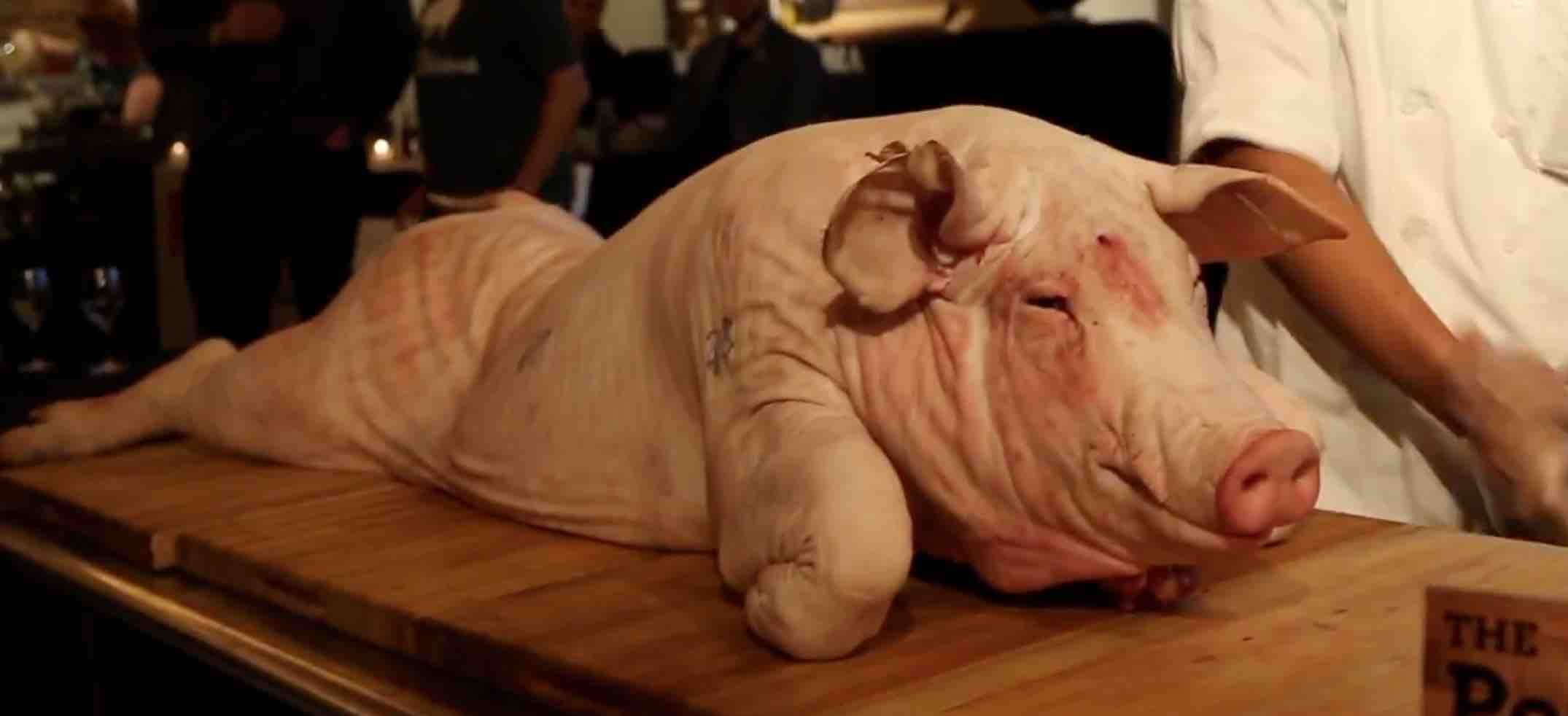
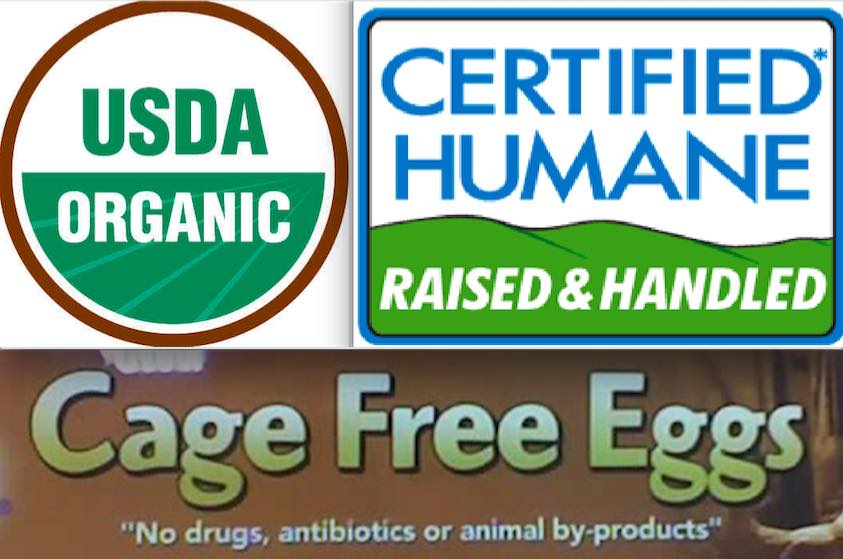
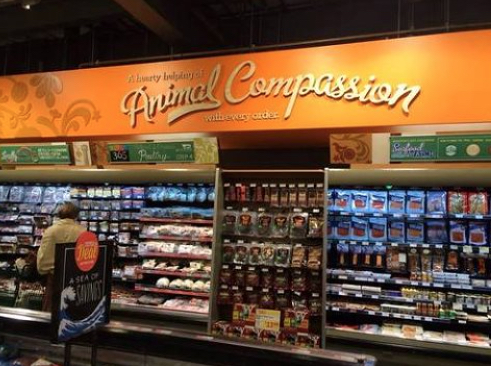

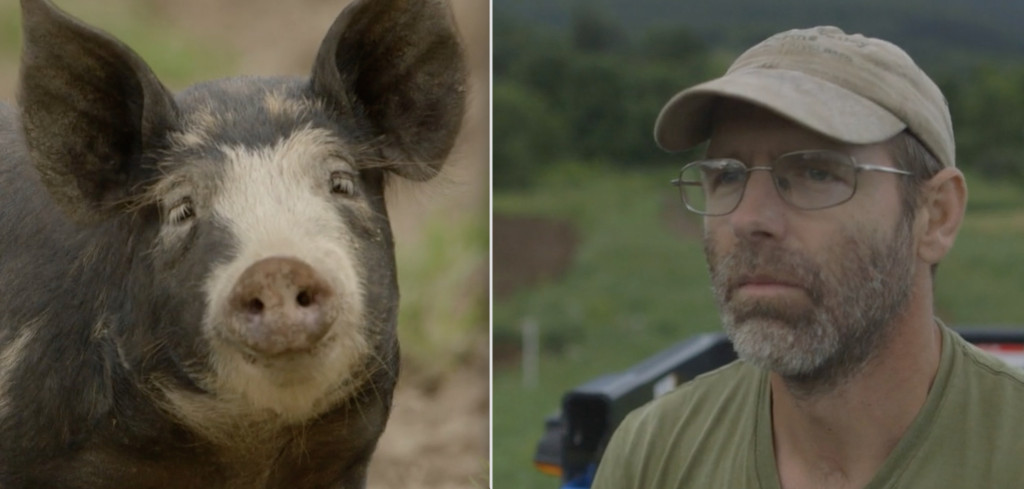
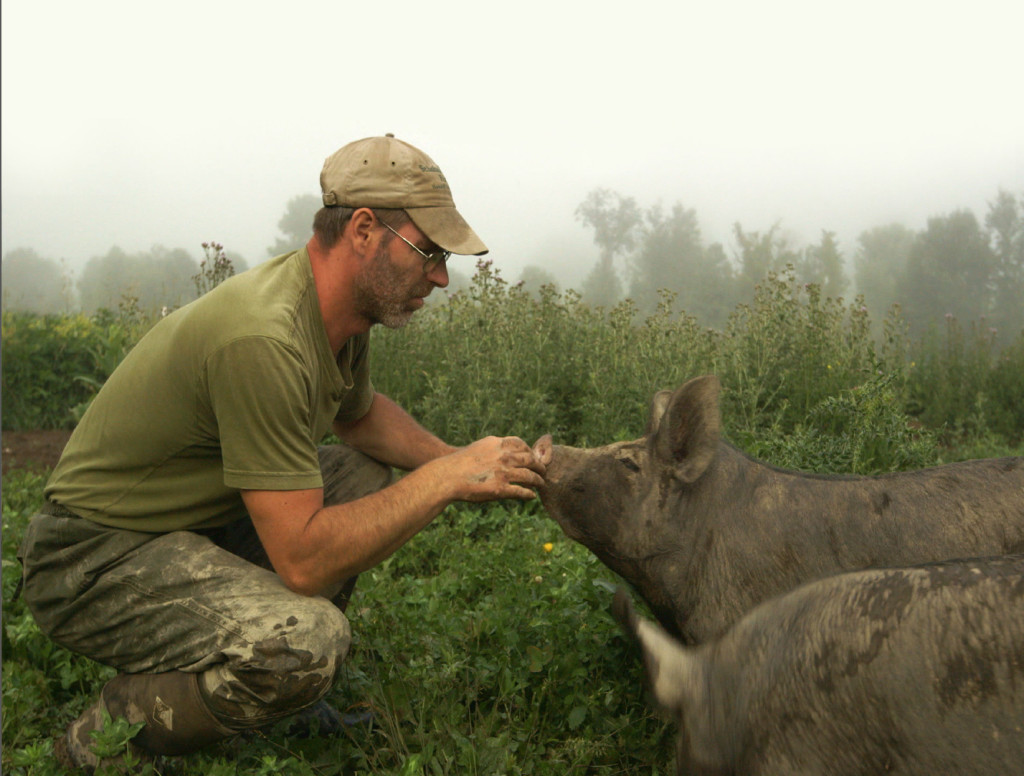
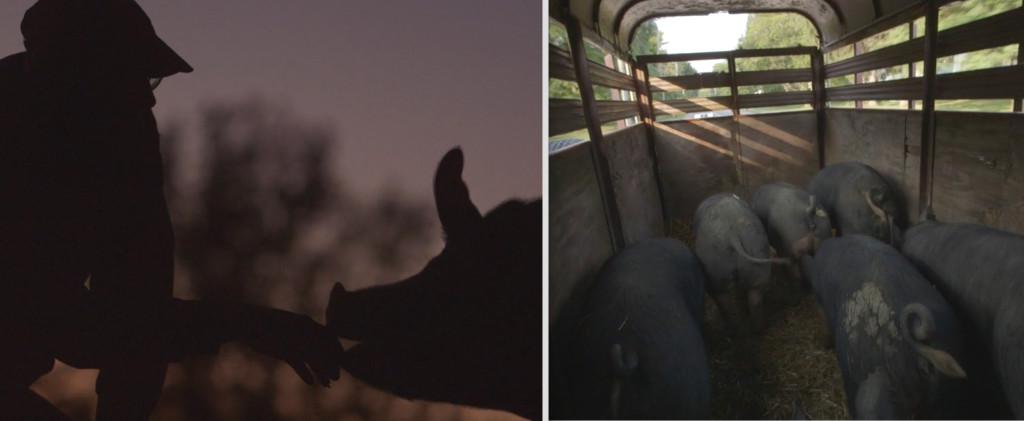
Follow Their Turn